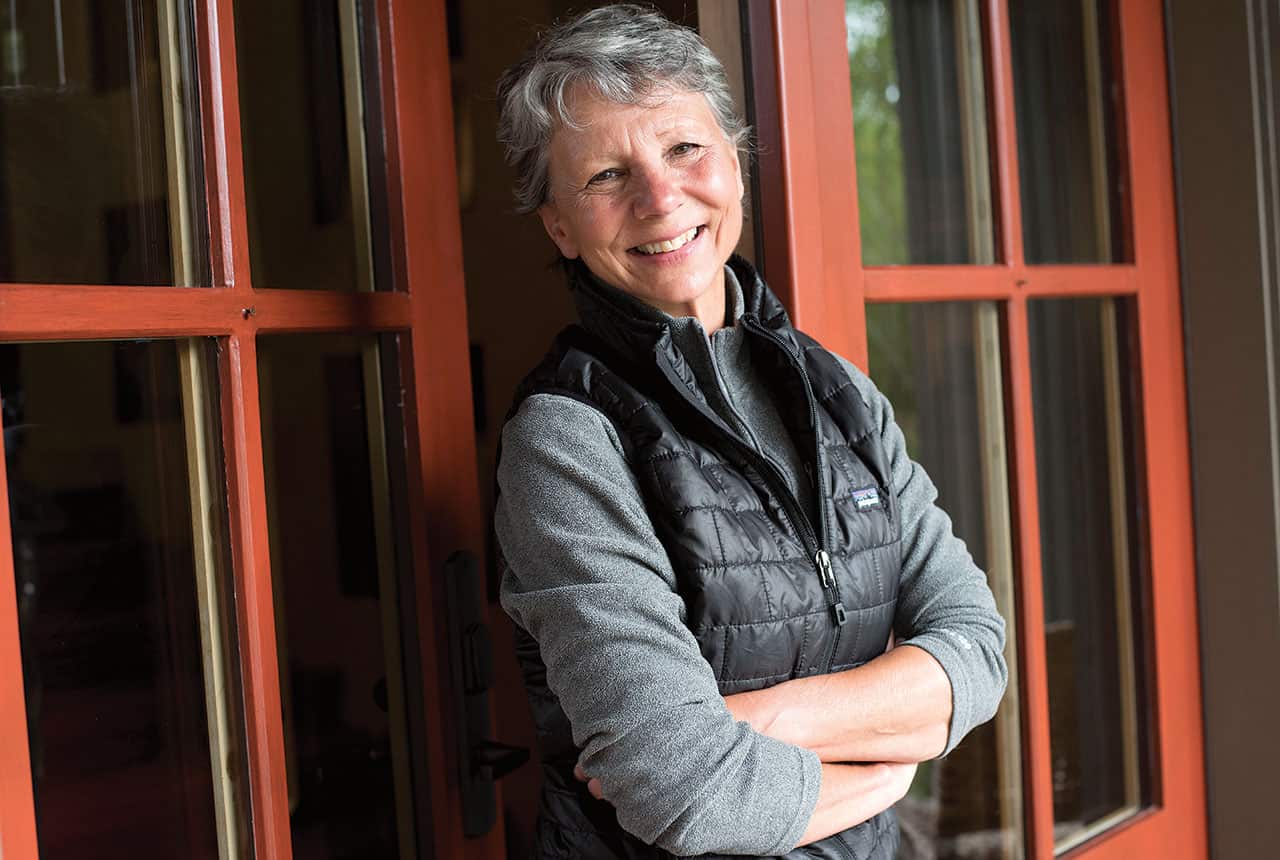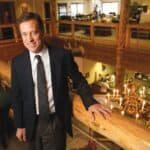Read The
Current Issue
Mickey Babcock
Interview by Lila Edythe

MICKEY BABCOCK WAS a self-professed “princess” the first time she came to Jackson Hole. It was 1983, and her trip here marked her first time sleeping in a tent and her first time backpacking. “It was two weeks of hell, and I couldn’t wait to come back,” says Babcock, sixty-three. “I came out here expecting to be treated like a princess and this land doesn’t do that.” Trip leader Lucius Burch Jr., who was a leading civil rights lawyer in Memphis, Tennessee, when not introducing friends to the wild, didn’t mince words explaining to Babcock how things were out here: “Mother Nature doesn’t give a rat’s ass who you are.” Babcock hasn’t missed a summer in the valley since and moved here full-time in 2004. She relocated with seed money saved from selling her Memphis interior design business, and her plan was to found a new business here. Fast-forwarding to the present, there is no shortage of designers working in the valley, though Babcock is not one of them. Her seed money instead went to philanthropy. “Instead of starting another business, I decided I’d start a foundation,” she says. Babcock’s Equipoise Fund works to energize the vision, voice, and visibility of the women and girls of Wyoming.
Q: What is the essence of you that your first trip here revealed?
A: Earthy, salty, compassionate. Committed. There are the things that you think you are, but this place makes you really face who you are.
Q: Why direct some of your commitment toward girls and women?
A: I’ve always been drawn to the underdog.
Q: Were you ever an underdog for reasons other than being female?
A: Yes, I was bullied in elementary school and the first year of junior high. I just never really fit in but tried hard to be one of the “cool girls.” Those early experiences, coupled with the ethic of my grandparents—all four of them were immigrants from Poland—to “give” fostered my own giving ethic.
Q: Growing up with this ethic you still considered yourself a princess?
A: I perceive of my “self” in Memphis as a princess, as I lived a very privileged life. I had a thriving design practice and had a lovely home. I might have finally made it as a “cool girl.” And I took much of this privileged lifestyle for granted.
Q: Equipoise focuses on getting programs and groups out on their own. Why do that instead of holding onto them?
A: For the first two years of Equipoise, we didn’t do any funding. I traveled the state doing listening tours and meeting with folks who had roots serving women. I learned there were groups out there doing good work, but there wasn’t a connection, no binder. It seemed the thing to do was to help jump-start the binding. Part of Equipoise’s niche is to listen to good ideas and see what we can do to get them going and then let them fly on their own.
Q: When do you know an idea is ready to fly on its own?
A: There’s no formula, but it’s apparent when the time comes.
Q: What’s left in Equipoise’s house?
A: We’ve fledged all of our chicks except for the Wyoming Women’s Legislative Caucus. We’re positioning it to spin off on its own by 2017.
Q: Are you looking for new programs?
A: I’m at a place where I need to think about what Equipoise looks like going forward. I recently realized that what Equipoise set out to do, it has happened. The landscape that I traveled when doing the listening tours has changed. Now I need to understand what the new landscape looks like and understand what I need to do to serve that new landscape.
Q: Advice for aspiring philanthropists?
A: Philanthropy doesn’t have to be money; it can be about energy.




